MercoPress. South Atlantic News Agency
Agriculture
-
Wednesday, April 25th 2018 - 08:50 UTC
Paraguay soy farmers hopeful newly elected Senate will not slap levy on exports
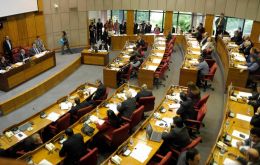
Paraguay's business-friendly ruling party lost fewer seats in Sunday's Senate election, than expected, ensuring strict fiscal policies while lessening chances of a tax hike on the key soy sector. Farmers in the world's No. 4 soybean exporter had feared that the new Senate might approves a measure, defeated last year, that would slap a 10% levy on exports.
-
Monday, April 23rd 2018 - 09:08 UTC
EU and Mexico reach new trade agreement: tariff cuts for European cheese and pork

The European Union and Mexico reached an agreement on Saturday on a new free trade deal, a coup for both parties in the face of increased protectionism from the United States under President Donald Trump. Since its plans for a trade alliance with the United States were frozen after Trump's election victory, the EU has focused instead on trying to champion open markets and seal accords with other like-minded countries.
-
Friday, April 20th 2018 - 09:08 UTC
EU bans chicken imports from several suppliers in Brazil

Europe’s decision to ban meat imports from several Brazilian suppliers affects 30 to 35% of the country’s exports to the bloc and will force companies to find new markets while officials work to reverse the measure, Brazil’s Agriculture Minister said.
-
Friday, April 20th 2018 - 08:38 UTC
First shipment of Argentine lemons to the US in 17 years

Argentina sent its first shipment of lemons to the United States in 17 years, a few months after President Donald Trump authorized citrus imports from the country.
-
Thursday, April 19th 2018 - 18:15 UTC
US/China trade war reaches Midwest sorghum with tariffs of 178.6%
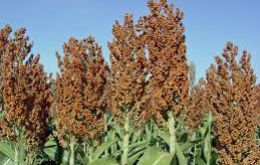
United States sorghum farmers fear they will lose their largest export market if China follows through with a tariff on their crop. China imposed preliminary anti-dumping tariffs of 178.6% on U.S. sorghum this week as part of its ongoing trade dispute with the U.S.
-
Thursday, April 19th 2018 - 08:48 UTC
Brazil allows processors to resume chicken exports but EU considering a ban
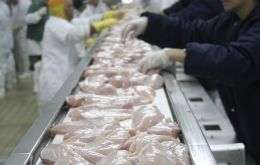
Brazil’s largest chicken processor BRF SA has been allowed to resume production at nine plants that export to the European Union, the Ministry of Agriculture said on Wednesday, a day before a potential EU ban related to a food safety scandal. The ministry clarified that one more plant had been cleared, referring to a firm appearing in the document as SHB Comércio e Indústria de Alimentos SA, which is also controlled by BRF.
-
Wednesday, April 11th 2018 - 18:35 UTC
Argentina imports 120.000 tons of soy-beans from United States

Argentina, the world’s third biggest soy producer, booked its largest purchase of U.S. soybeans in 20 years on Tuesday after drought cut its harvest, forcing crushers there to turn to imports. The surprise move pushed Chicago soybean futures to a one-month high, in the latest development to upend global soy trading after top buyer China last week proposed tariffs on U.S. imports amid an intensifying Washington-Beijing trade dispute.
-
Wednesday, April 11th 2018 - 09:39 UTC
Falklands' meat company enters contract to supply defense facilities at MPC/MPA
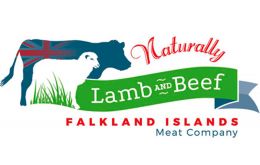
The Falkland Islands Meat Company - FIMCo - has entered into a supply contract with Ecolog – a key provider for UK Ministry of Defense facilities at MPC/MPA, to provide their high-quality Falkland Islands meats. The contract is for five years, delivering beef, lamb and mutton to the MOD’s and Ecolog’s exacting standards of price, availability and - of course - quality.
-
Wednesday, April 11th 2018 - 09:21 UTC
Drought will cost Argentina's herd up to a million head
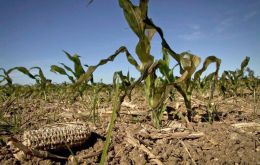
Argentina’s herd will shrink by up to 1 million head of cattle next year as ranchers facing scorched pastures after the worst drought in decades decide to slaughter females rather than grow their herds, analysts said.
-
Tuesday, April 10th 2018 - 09:09 UTC
Sharing cash for farmers, one of the biggest post Brexit challenge, say experts
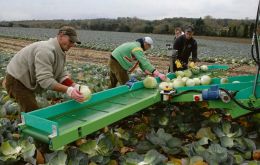
Quitting the European Union means the UK will have to go back to the drawing board over devolution, constitutional experts have warned. Wrangles over sharing out cash for farmers will be one of the biggest challenges ministers face, according to the Institute for Government (IfG).